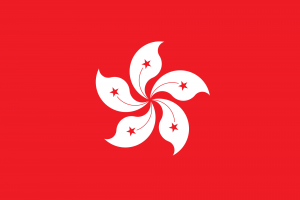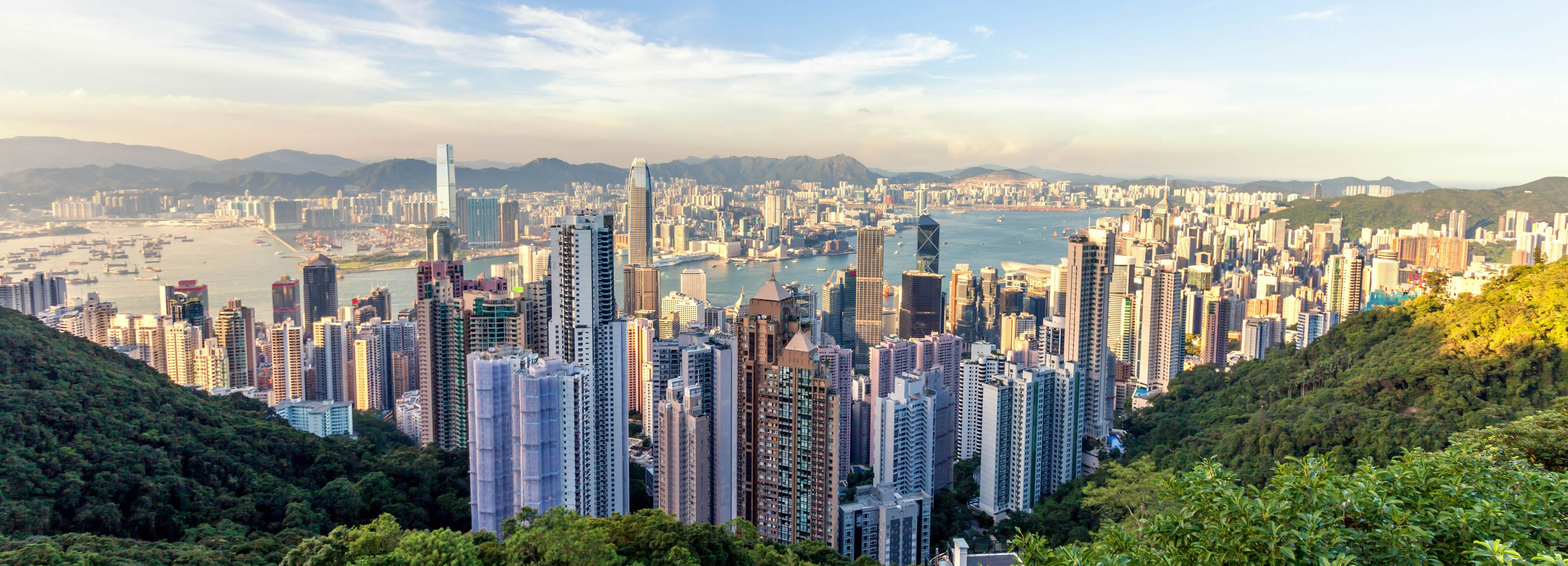Language/Yue-chinese/Culture/Hong-Kong-Timeline
< Language | Yue-chinese | Culture
Jump to navigation
Jump to search
Rate this lesson:
Historical Timeline for Hong Kong - A chronology of key events
Hong Kong Timeline[edit | edit source]
| 16th-10th BC AD | Shang dynasty (which follows the Xia dynasty). Appearance of writing in China. |
| 11th-6th BC AD | Western Zhou Dynasty. Mythical golden age. The end of the period is called the Spring and Autumn period. |
| 5th-3rd BC AD | Warring States. Appearance of Confucianism and Taoism. |
| 221-206 BC AD | Qin Dynasty. Unification of China, foundation of the empire, construction of the Great Wall. |
| 206 BC to 220 apr. AD | Han Dynasty, "Sons of Heaven", the "pure" Chinese. China absorbs Hong Kong and its hinterland. Opening of the Silk Road, spread of Buddhism, invention of paper. |
| 220-581 | The Three Kingdoms. Ruin of the centralized state, it is the Chinese Middle Ages. Three kings fight for preponderance: Shu in the West, Wu in the East, Wei in the North. |
| 581-618 | Sui Dynasty. Reunification of the empire. Agrarian reform, construction of a canal of over 7,000 km from Beijing to Hangzhou. |
| 618-907 | Tang Dynasty. Printing of the first book, invention of powder. |
| 907-960 | The Five Dynasties and the break-up of the empire. |
| 960-1279 | Song Dynasty (North and South). Formed by great barbarian empires of nomadic origin. |
| 1279-1368 | Yuan Dynasty. It was the Mongol era, Kubilai Khan, grandson of Genghis, made Beijing his capital. Marco Polo's trip to China. |
| 1368-1644 | Ming Dynasty. Large merchant fleets are establishing contacts with all the ports in Asia and South Africa. In 1557, Macao was made available to the Portuguese. |
| 14th century | The Cantonese settled in Hong Kong, closely followed by the Hakka. |
| 1644-1912 | Advent of the Qing, Sino-Manchu dynasty. The empire is expanding. The West entered China through Jesuit missionaries. Population growth, opium wars with the West. |
| 17th century | The Hong Kong region becomes a hotbed of rebellion and piracy. |
| 18th century | At the turn of the century, Chinese national sentiment grew, leading to the severing of all relations with the West. From 1757, only the port of Canton remained open to foreign trade. China becomes largely independent. Opium, until now a drug, is used as a narcotic. Despite the Chinese ban, the British continue to trade in it. |
| 1839-1842 | First opium war, signing of unequal treaties. Among the clauses of the Nanjing Treaty, China is forced to finance the opium seized in Canton, must cede Hong Kong to the British Crown and open counters in Shanghai, Amoy (Xiamen), Ningbo and Fujian. Hong Kong becomes a free port, with British jurisdiction also protecting Chinese traders and shipowners registered there. |
| 1850-1864 | Popular anger and Taiping insurrection. |
| 1851 | The population of the colony counts 33,000 inhabitants, the territory begins to expand by land reclamation. |
| 1856 | Second Opium War (1856-1860). |
| 1860 | End of the Second Opium War. The Franco-British expeditionary force enters Beijing. Summer Palace bag. After the capture of Beijing by the Allies, the peace treaty granted the Kowloon peninsula and the island of Stonecutters to Great Britain. |
| 1869 | The Chinese government bans the export of coolies under contract. |
| 1884 | A year of disastrous conflicts with France. The Triads organize a general strike of Chinese workers in Hong Kong to refuse to repair the French ships engaged against China during the Tonkin War. |
| 1898 | The Beijing Convention grants Great Britain a 99-year lease on the New Territories (region north of Kowloon extending to the Shenzhen River) and on 235 islands off Hong Kong. The agreement is made for the symbolic amount of one dollar. |
| 1899 | Uprising and rebellion of the Boxers, crushed by the intervention of the West on the appeal of the Empress Dowager Cixi. She governed "behind the screen" with rigidity and crushed several attempts to modernize the country. |
| 1908 | Death of Cixi. A 3-year-old child, Puyi, succeeds him on the throne. |
| 1912 | Sun Yat-sen, elected provisional president of the First Republic of China, is considered the father of modern China. At the same time, the Chinese revolution brought a resurgence of nationalism in China, which generated anti-British protests. |
| 1912 | Fall of the Chinese Empire. End of more than two thousand years of monarchical rule. Beginning of the Warlord period. |
| 1927 | Uprising of the workers in Shanghai. Tchang Kaï-shek (Jiang Jieshi) crushes the rise of communism by massacring thousands of people. |
| 1931 | The number of inhabitants rose to 900,000 inhabitants, 95% of whom were Chinese immigrants. |
| 1937 | Open war between China and Japan (Second Sino-Japanese War from 1937 to 1945). |
| 1938 | Occupation of Canton by the Japanese, which causes an influx of refugees in Hong Kong, bringing its population to 1.6 million. |
| 1941 | The day after the attack on Pearl Harbor, the Japanese stationed in Canton invade and occupy Hong Kong. British authorities surrender. |
| 1945 | Hong Kong, likely to be returned to China, is ultimately not. The Chinese who fled are coming back. Difficult recovery period. |
| 1949 | China becomes communist. Mao Zedong chairman, Tchang Kai-shek fled to Taiwan. Millions of Chinese refugees arrived in Hong Kong, bringing the population to 2.2 million in the mid-1950s. Hong Kong's economy took off, thanks to the activity of its port and the development of its industry (textiles, toys, electronics and watchmaking). |
| 1966 | The Chinese Cultural Revolution causes many disturbances in the colony. |
| 1979 | Opening of China which results in the relocation of Hong Kong industry to China, in particular in the province of Guangdong. Hong Kong becomes the first "foreign" investor in China. |
| 1984 | British Prime Minister Margaret Thatcher signs with Chinese Prime Minister Zhao Ziyang the Sino-British joint declaration on the question of Hong Kong, which provides for the handover of Hong Kong to China. |
| 1989 | The events of Tian An Men spark protests in Hong Kong. |
| 1990s | Chinese investment from Hong Kong increases. |
| July 1, 1997 | Hong Kong returns to the fold of the motherland and becomes a Special Administrative Region (SAR) of the People's Republic of China. Apart from foreign affairs and defense, the SAR enjoys considerable autonomy. The maintenance for fifty years of the economic and liberal system of Hong Kong and the application of the formula "one country, two systems". |
| 1997 | Economic crisis due to overheating of the real estate sector. |
| December 20, 1999 | Handover of Macao to China, with a system of government similar to that of Hong Kong. |
| 2001 | China is admitted to the WTO, which will allow Hong Kong to increase its economic growth over time by 5.5%. |
| June 2002 | Tung Chee-Hwa is re-elected chief executive. |
| March 2003 | Hong Kong is hard hit by the atypical pneumonia epidemic, SARS, which came from China. This deadly disease is hitting Hong Kong hard as it slowly recovers from the 1997 crisis. |
| July 1, 2003 | Nearly half a million people (the largest parade in the former British colony since the protests against the 1989 Tian An Men massacre in Beijing) take to the streets to protest against a project of "anti-subversion" law which would limit individual freedoms as well as the "one country, two systems" principle which must guarantee a large autonomy in Hong Kong for 50 years. It is also a movement of massive discontent born of the economic crisis and the SARS epidemic, considered poorly managed. |
| November 23, 2003 | In local elections, the Democratic Alliance for a Better Hong Kong (DAB), near Beijing, won 65 seats on the city council, but the Democratic Party won with 95 seats. The rest of the 326 seats are divided between small parties and independents. |
| September 12, 2004 | Legislative elections. Hong Kong residents elect half of the members of the Legislative Council by direct universal suffrage. The other half are elected by professional colleges. The pro-Beijing parties obtain the majority with 34 seats, the Democratic party takes 9 seats. The opposition parties, however, obtained a majority by universal suffrage. |
| March 2005 | Hu Jintao asks Tung Chee-Hwa to hand over the reins of power to the much more popular Donald Tsang. |
| April 2005 | Donald Tsang resigns and officially declares himself a candidate for the June 2005 elections. The result of these elections is no surprise. After obtaining the sufficient number of votes in the electoral college, Donald Tsang is declared chief executive of the SAR. He takes up his official duties on June 21. |
| April 2, 2007 | After being re-elected, Donald Tsang is approved by Beijing. He will remain in office until 2012. |
| December 29, 2007 | The Chinese government sets a timetable for universal suffrage, presented by the Hong Kong constitution as the ultimate goal: election by universal suffrage of the chief executive in 2017, and of Parliament in 2020 at the earliest. Hong Kong Democrats are contesting Beijing's decision and continue to campaign for universal suffrage since 2012. |
| August 2008 | during the Beijing Olympics, Hong Kong hosts the horse riding events in Sha Tin, at the Beas River Olympic racetrack. |
| 2010 | Hong Kong takes eighth place among the most expensive cities in the world for expatriates. At the same time, a United Nations report designates it as the city with the biggest pay differentials in Asia. |
| May 16, 2010 | Holding of partial legislative elections in five constituencies, following the resignation of five elected members of the pan-democratic movement with the aim of being re-elected. According to the resigners, this re-election, effective despite a turnout of only 17%, is to be seen as a kind of referendum for democracy. For his opponents, the by-elections were a vast waste of taxpayers' money. |
| 2011 | Hong Kong remains one of the easiest cities in the world to do business, just behind Singapore. |
Source[edit | edit source]
World Timelines[edit source]
Other Lessons[edit | edit source]


